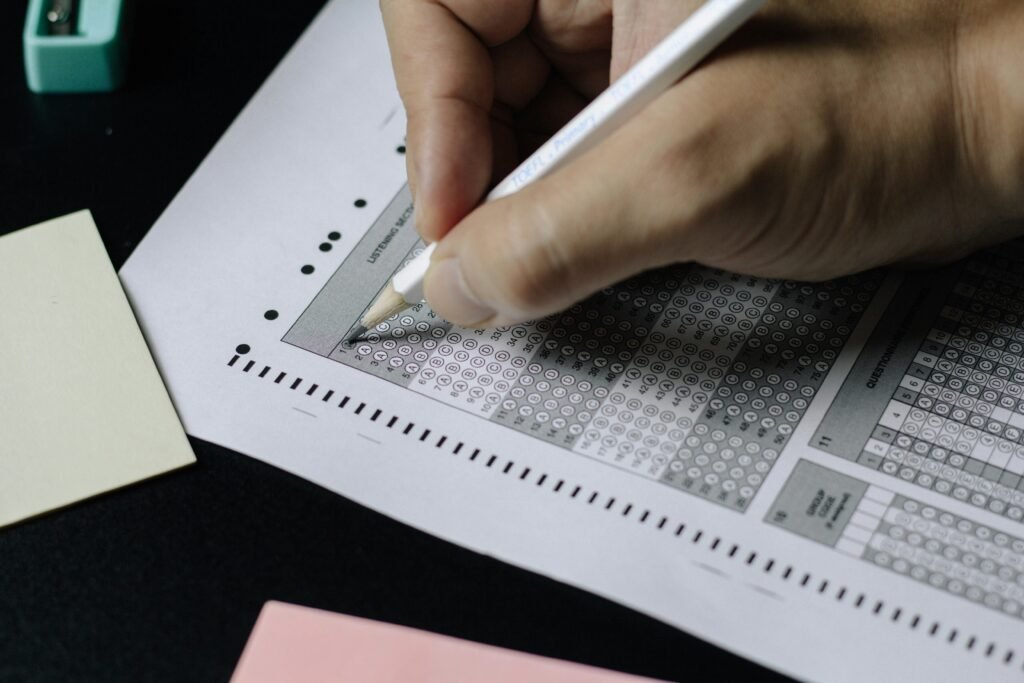Many law students start exam prep the month (or sometimes weeks) before final exams. This often includes a heavy focus on outlining (or creating study tools) and maybe a few practice problems, spurred from the thought “Oh crap! My final is next month!”
Instead, exam prep should be a consistent practice that law students start now—within the first several weeks of classes starting. Starting exam prep now means reducing the time pressure trying to relearn concepts from nearly ten weeks ago. Starting exam prep now means fitting in consistent time for practice problems, rather than hoping to cram in at least one practice test before the exam. Starting exam prep means reducing the anxiety tied to final exams.
What does consistent exam prep look like this early in the semester?
- Create Your Own Outline or Study Tool: Creating an outline (or what I now like to call a “study tool” because outlining can have a negative connotation for some) allows you to review what you’ve learned, synthesize & process concepts, and draw connections between them. Plus, starting a study tool early allows you more time to condense it as you better understand the law. You should absolutely create your own study tool (or outline) to take advantage of these important cognitive tasks, rather than relying on one from an upper-level student. For creating your study tool, if you are a first-year student, this process can start about four to five weeks into the semester; if you’re an upper-level law student, this process starts after the first two weeks of the semester. That time is here—so get started!
- Chunk Your Learning: When law students are in “exam mode” that month before finals, they can get so overwhelmed trying to get it all learned and memorized. However, starting earlier—now—allows you to study more purposefully and thoughtfully. And chunking learning means dividing a topic, such as Intentional Torts into its sub-parts like Battery, Assault, False Imprisonment, and so on, can make that task completion much more digestible. So, after a professor completes a major issue or sub-issue (a “unit”) in class, you should immediately review and add that to your study tool. Think of this like a grocery list. If you had a grocery list of 50 items, you might get overwhelmed trying to remember where things are and miss items; but if you put all your produce items together since that’s where your grocery store starts, and then deli items next, and so on, you’ll be much less likely to miss things and stay on track.
- Complete Practice Problems to Check Your Learning: Practice problems are scary. Perhaps not Halloween scary, but the thought of getting a question wrong, or even several questions wrong in a row, can be very scary for law students. However, science shows that completing practice problems is not only active learning that helps students to better understand their knowledge gaps,[1] but is also a tool to help reduce test anxiety.[2] For example, by doing practice questions now, you can assess what you know and what you don’t, remediate the topics you don’t know, and keep practicing and learning. However, for a student who saves practice until their outline is perfect[3] or right before the exam, that student will not be able to close their knowledge gaps and is less likely to see the success they desire. Therefore, you should use multiple choice and short answer questions in a supplement (again in “chunks”) to best test your knowledge on those discrete topics. Doing this will allow this exam prep early will allow you to get to several larger issue-spotter practice questions in the weeks before the final exam.
- Modifications Based on Professor Preferences: Law school supplements are not made for specific professors’ classes; they’re made for students across the country to understand the law and practice applying it to new sets of facts. Sure, your professor will likely emphasize some key areas of law and skip over others. They will likely also want your essay product written a specific way. So, when you use a study aid supplement your school has available, do practice questions on those topics your professor has covered and skip over those your professor has not. If while doing practice questions, you realize that the answer does not seem right or you think your professor would address it differently, approach them about it and get clarification. Again, by starting the process earlier, you are able to make the small adjustments necessary before test day and build your confidence.
- Ask for Help Early & Often: Similarly, as you work on your study tool and complete practice questions, ask for help. Remember, each exam you take at the end of the semester will test information differently and expect slightly different outputs. Your course professors and academic success professors are available (and happy) to help answer your questions now, so let them help you along the way.
So, as you get started, remember that carving out even an extra hour or two for exam prep now can mean the difference between being prepared for an exam in ten weeks and just hoping that you’re exam ready. So, choose the way that builds learning, feedback, and confidence to ace your final exams this semester!
(Erica M. Lux)
[1] See, e.g., Jennifer M. Cooper & Regan A. R. Gurung, Smarter Law Study Habits: An Empirical Analysis of Law Learning Strategies & Relationship with Law GPA, 62 St. Louis Univ. L. J. 361 (2018); Jennifer A. Gundlach & Jessica R. Santangelo, Teaching & Assessing Metacognition in Law School, 69(1) J. Legal Educ. 156 (2019).
[2] Sarah M. Bonner, Breaking the Test-Anxiety Loop: Using Self-Regulated Learning to Improve Bar Exam Performance, 91(4) The Bar Examiner (2022–2023), https://thebarexaminer.ncbex.org/article/winter-2022-2023/breaking-the-test-anxiety-loop/ (discussing how using self-regulated learning with practice tests can help reduce test anxiety in bar prep).
[3] There is no such thing as a perfect outline.


